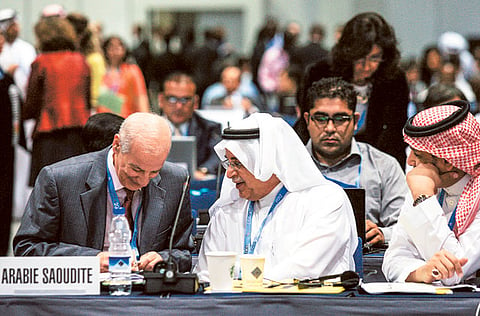UN makes changes to telecommunications treaty
Major nations including US and UK refuse to sign agreement over internet censorship concerns

Dubai: An agreement to update 24-year-old United Nations telecommunications regulations was approved against the opposition of countries including the US, Canada, Australia, Philippines, India, Costa Rica, Serbia, Finland, Italy, Spain, Greece, Portugal and the UK, whose officials walked out on the talks on concerns about internet regulation and censorship.
The new agreement will come into effect in January 2015.
The last time the treaty was updated was in 1988 in Melbourne, Australia.
The new agreement will give countries a right to access international telecommunications services and the ability to block spam, which delegations declining to sign the amended text argued would pave the way for government censorship and control over the Web.
Sarah Parkes, secretary to World Conference on International Telecommunications (WCIT), said the signing ceremony will take place at 3.30pm Dubai time.
“The countries who won’t sign the new treaty will continue to be bound by the 1988 version,” said Parkes said.
Lebanon urged non-signing states to reconsider as regulations are important for development, better standards of living & human rights.
Indonesia seeks cooperation between ITU & ICANN and all multi stakeholders is a must.
Progress was made in some areas such as transparency in international roaming fees, fundamental divides were exposed leaving a significant number of countries unable to sign the International Telecommunications Regulations (ITRs).
Statements made by many delegations are very clear that internet issues did not belong in the ITRs and that they would not support a treaty that is inconsistent with the multi-stakeholder model of Internet governance.
Despite deep divisions, all the delegates praised the UAE and especially Mohammad Al Ganim, for the tireless efforts made throughout the conference.
Sign up for the Daily Briefing
Get the latest news and updates straight to your inbox



